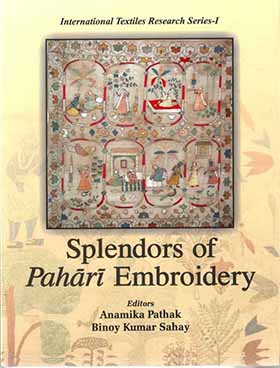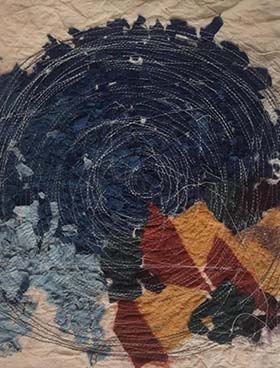ABSTRACT
Traditionally practiced by rural women as a family tradition, Phulkari is a visually graphic embroidery where every motif, colour, pattern denote identity, auspicious and cultural beliefs. National Institute of Fashion Technology, as the knowledge partner for USTTAD scheme, has identified crafts predominantly being practiced by minority communities and is supporting the Ministry of Minority Affairs through various activities like an extensive diagnostic study of the crafts and creating linkages between practicing designers and artisans to build long-term relationships.
The paper will discuss the workshops conducted with Phulkari artisans in Patiala and focus on the strategies employed for design education among the women embroiderers. The steps taken for initiation of contemporary Phulkari while establishing relevance of the craft in today’s times will be presented through the products developed in the workshops. With a collaborative approach for sustaining livelihoods and craft heritage, the products showcased have been co-created to combine the visual language of artisans with that of contemporary designers.
ABOUT AUTHOR
DR. VANDANA BHANDARI
Professor, National Institute of Fashion Technology, New Delhi. India
During the journey of over three decades as an academician I have worked as an educator, author and administrator with an active social engagement in the fashion, textile and craft sector. I have held the position of Dean Academics at National Institute of Fashion Technology, (NIFT) and currently a Professor at NIFT.
I have authored and compiled books and papers on Fashion and Textiles. Some books include: Costume, Textiles and Jewellery of India – Traditions in Rajasthan; Jewelled Textiles: Gold and Silver Embellished Cloth of India.
Also leading a national level project titled ‘USTTAD’ at NIFT which has a collaborative approach for sustaining livelihoods and craft heritage.


